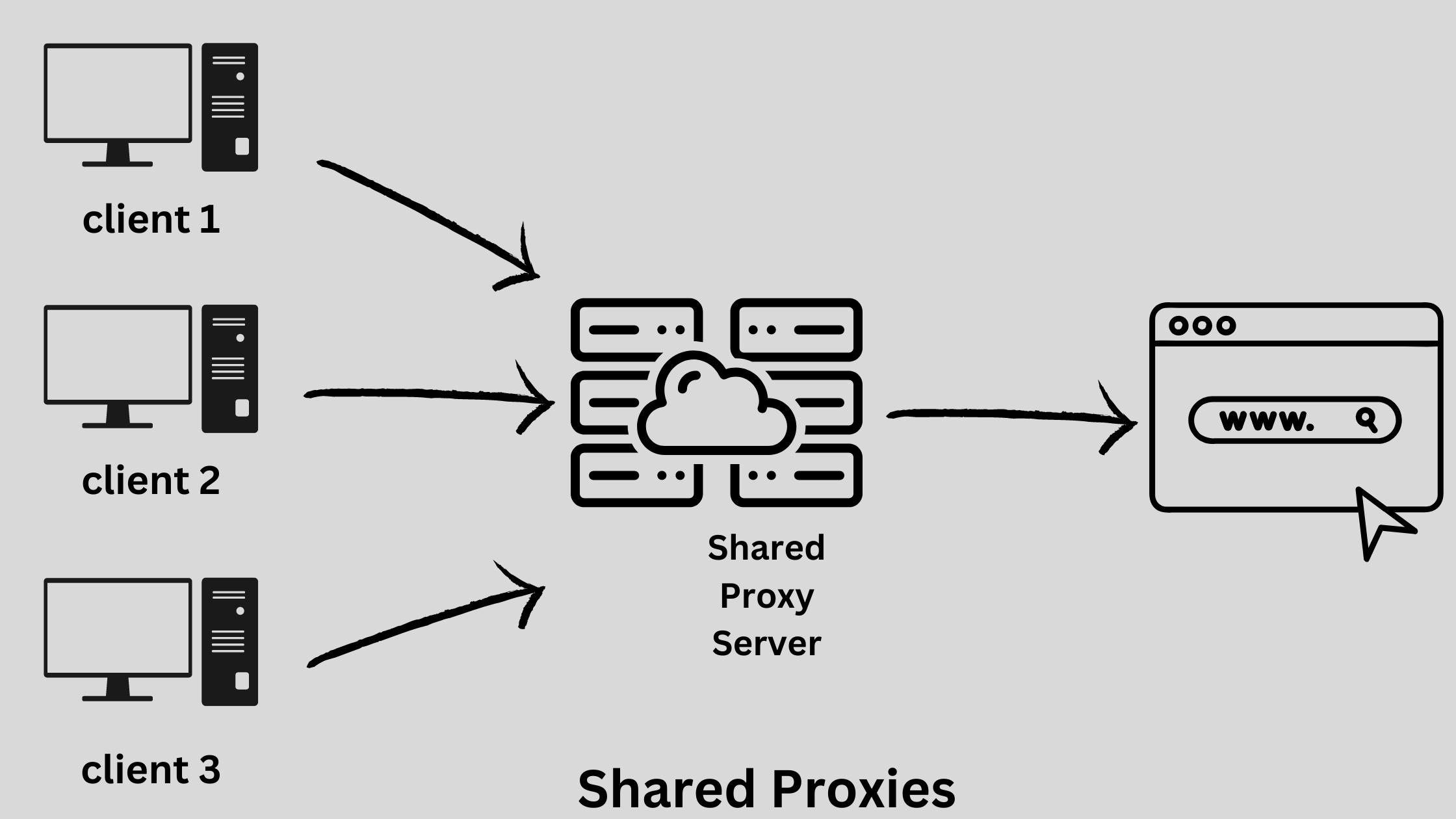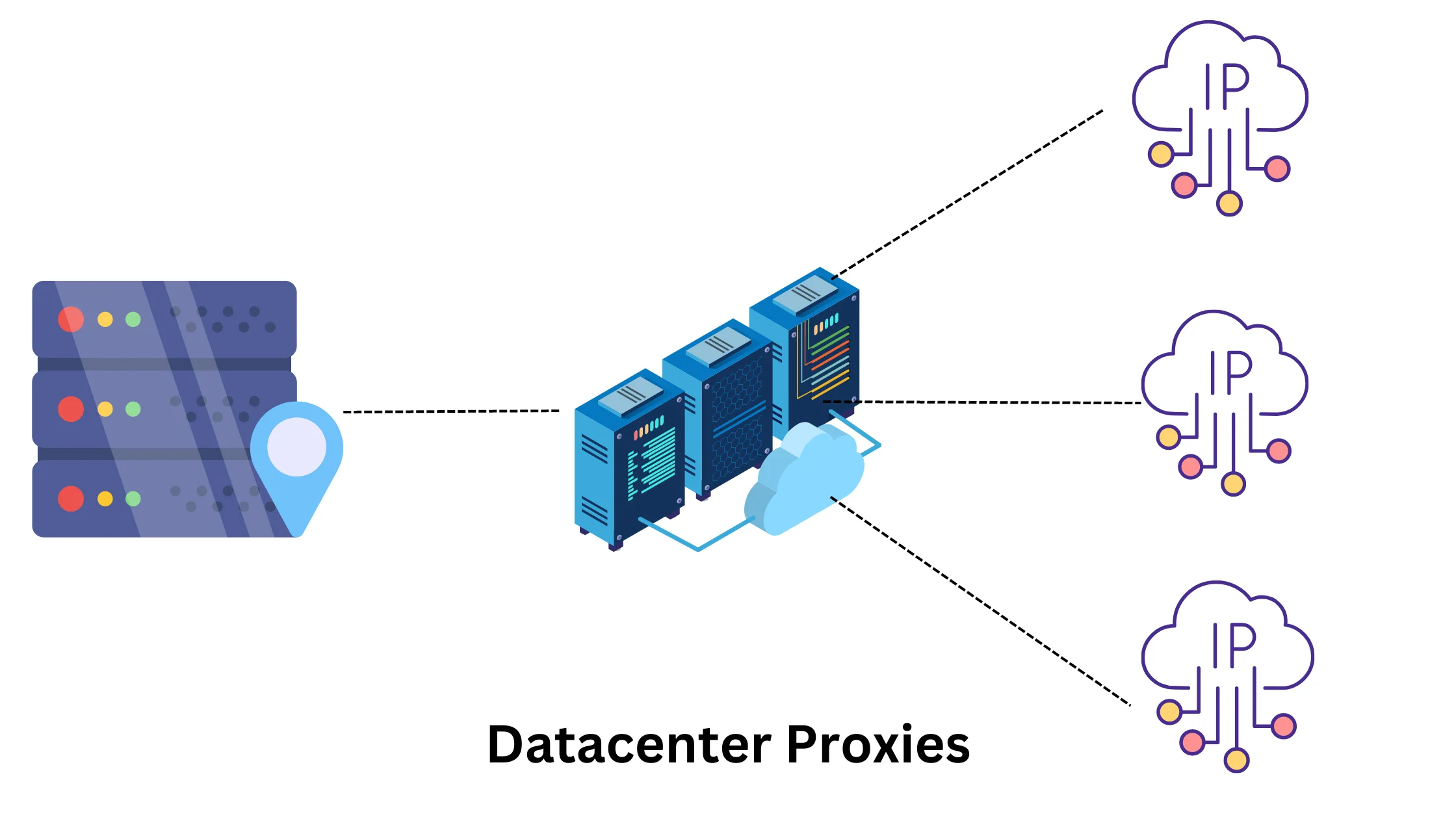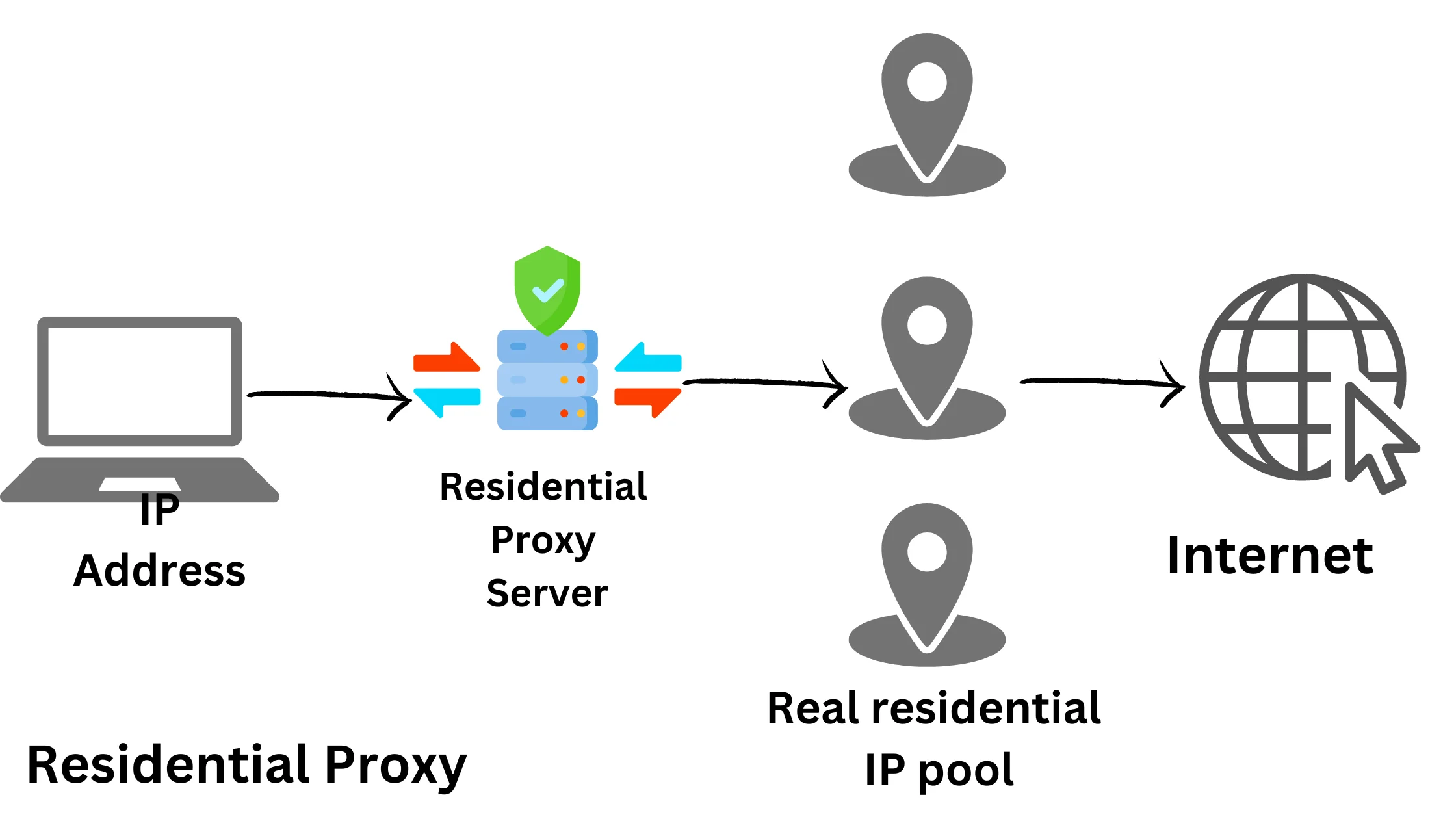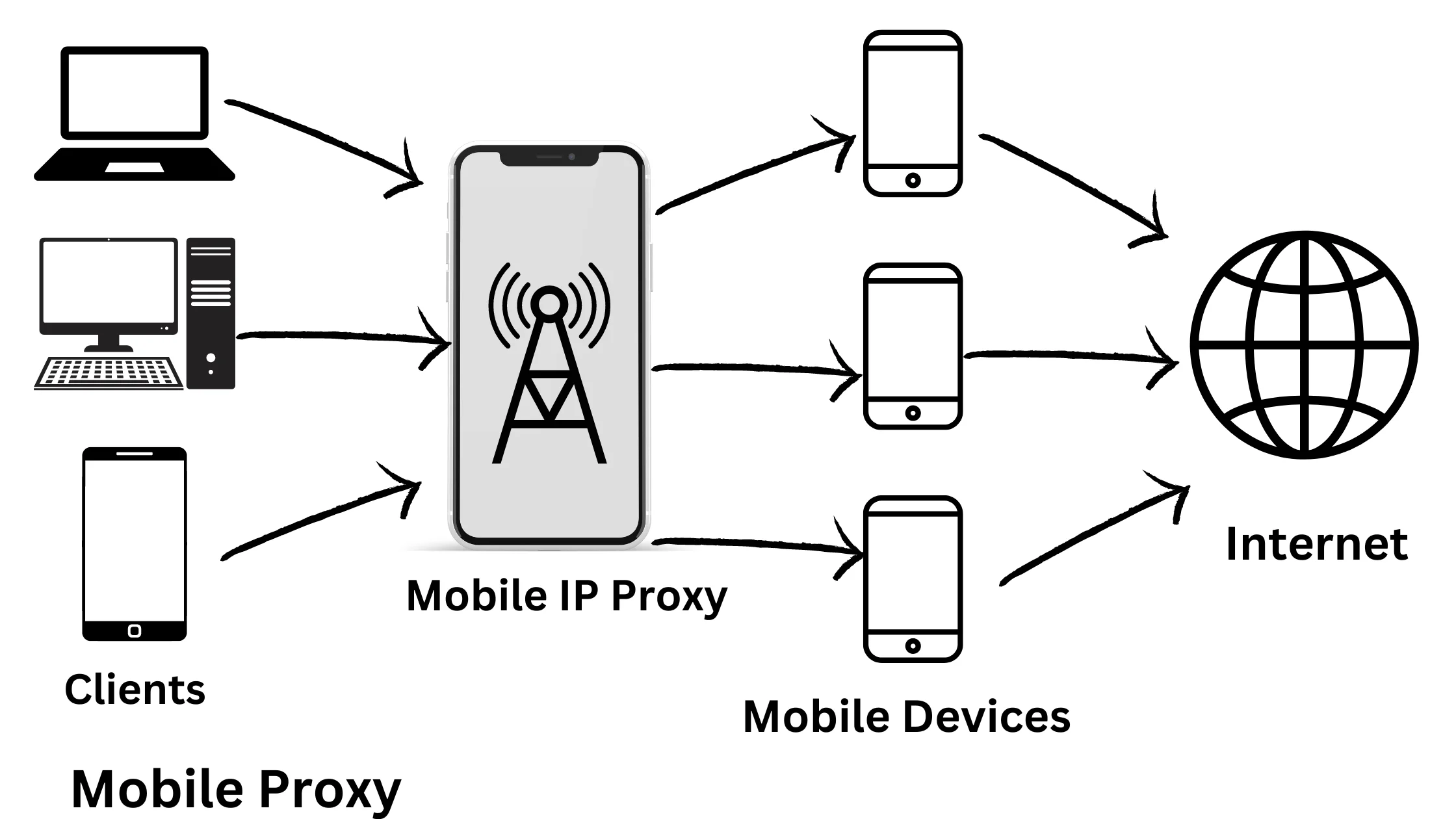In today’s online world, staying safe and keeping your private information secure is really important. Many people and businesses use something called proxies to help with this.
Shared proxies are one type of proxy that lots of people use because they’re cheaper and easier to get than other types.
Shared proxies work by letting lots of people use the same proxy server at the same time. This means you can hide your internet address and browse the web without anyone knowing who you are. It’s like wearing a disguise online!
In this review, I’ll talk about what are shared proxies, how they work, and why people use them. I’ll also discuss the good and not-so-good things about shared proxies so you can decide if they’re right for you.
Whether you’re just someone who wants to stay safe online or a business looking for ways to protect your data, this review will help you understand shared proxies better.
What Are Shared Proxy?
Shared proxies are like using a computer together with other people. Imagine you’re all sitting at the same desk and taking turns using the same computer. That’s how shared proxies work.
There are three types of proxies: private, shared, and public. Shared proxies are in the middle, where a bunch of people share the same proxy server or IP address to browse the internet.
Unlike private proxies, which are only for one person, shared proxies are for a group of people, maybe several or even dozens.
Shared proxies are cheaper than private ones because they’re shared among many users. But there are some downsides. If someone else on the same proxy does something bad, like sending spam, it could affect everyone using that proxy.
Also, since everyone shares the same “internet pipe,” the connection might be slower than with a private proxy. Plus, sometimes you might have to deal with those annoying CAPTCHA puzzles.
How Does a Shared Proxy Work?

A shared proxy is like a middleman between your computer and the internet. When you want to visit a website or use an online service, instead of directly connecting to it, your request goes through this shared proxy server first. Then, the proxy server sends your request out to the internet.
The cool part is, because many people are using the same shared proxy, your actual computer’s IP address stays hidden.
So, websites and services on the internet only see the IP address of the shared proxy server, not yours. This can help keep your online activities more private.
But there’s a catch. Since lots of people are sharing the same proxy, if someone does something bad through it, like spamming or other shady stuff, it could get the shared IP address in trouble.
This might mean that some websites could block or blacklist that IP address, affecting everyone using it. So, while shared proxies offer some anonymity, it’s not as secure as having your own private proxy.
Pros & Cons of Shared Proxy:
Pros
- Shared proxies are generally cheaper than private proxies, making them more accessible to users on a budget.
- Despite being shared among multiple users, shared proxies are still reliable and functional.
- Shared proxies can be easily integrated with web scraping tools, allowing users to extract data from websites efficiently.
- Bots can be used alongside shared proxies to automate tasks such as data extraction, saving time and effort.
- Shared proxies offer a high level of anonymity because many users utilize the same IP address, making it difficult for websites to track individual users.
- Shared proxies can be enhanced with extra features to improve efficiency for specific applications.
Cons
- Since bandwidth is shared among users, shared proxies may result in slower internet speeds compared to private proxies.
- Users of shared proxies may encounter more captchas while browsing or accessing websites, which can be inconvenient.
Types of Shared proxies
Shared proxies come in various types, each with its characteristics and considerations:
- Free or Public Proxies:
These proxies are available for anyone to use and are often found on public proxy lists. Thousands of users can access the same proxy server simultaneously, leading to overloading and frequent offline status due to excessive traffic.
- Data Center Hosted Proxies:

Proxy providers offer these proxies with a specified number of users, such as 3 or 5. It’s not advisable to rely solely on the number of users specified by the provider, as it may not be accurate.
It’s recommended to test the proxy’s bandwidth and performance on various platforms before making a decision.
- Residential Proxies:

Residential proxies are typically shared among multiple users unless the provider explicitly offers a private proxy pool. The number of IPs stated by the provider on their website is the total count updated daily, with around 20-30% of the pool refreshed each day.
Due to simultaneous usage by hundreds or thousands of users, the likelihood of proxies not working on target websites is high, especially for popular countries like the USA, UK, and Germany.
- Mobile Proxies

Mobile proxy providers allow users to share the cost of a proxy among several people. This option provides relatively trustworthy proxies at a lower cost.
GNAT technology reduces the risk of users being blocked on target websites, even when using shared mobile proxies.
Choosing a Reliable Shared Proxy Provider
When picking a shared proxy provider, there are some things you should think about. First, check their reputation and how long they’ve been in business.
A good reputation means they likely offer good proxies and services. Look for reviews from other customers to see what they say.
Next, consider the size and locations of the proxy network. A bigger network means more IP addresses available, which can help avoid issues. Also, having proxies in different places can be useful if you need access to specific websites.
Customer support is important too. You’ll want a provider with responsive customer service, so if you have a problem, you can get help fast. Look for providers with 24/7 support through chat, email, or phone.
Reliability matters a lot with shared proxies. Downtime or connection problems can disrupt your online activities and might even make you less secure. Check if the provider guarantees uptime and has backup systems in case of issues.
Price is also a factor, but don’t just go for the cheapest option. Quality and reliability are important, too. Compare prices from different providers and see what features they offer for the price.
Quick Links:
Conclusion:
Thus, we can conclude by saying that shared proxies are important for keeping your online activities safe and private. They help protect your personal information and allow you to browse the internet anonymously.
Shared proxies also let you access websites faster and bypass any restrictions based on your location. Plus, they’re a cost-effective option if you need multiple IP addresses.
